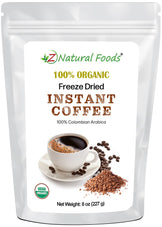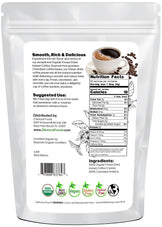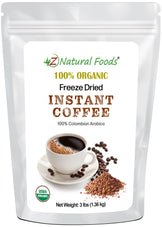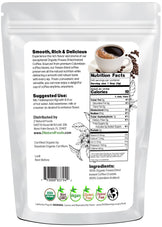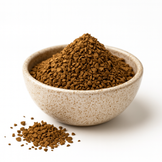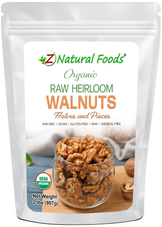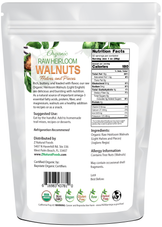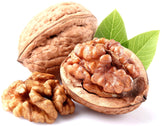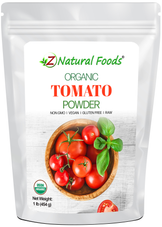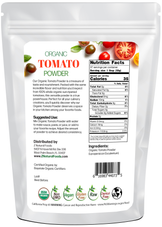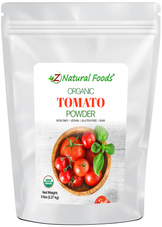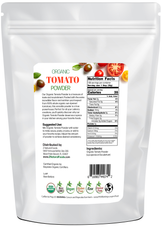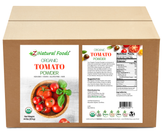Description
Description
Today’s article marks the beginning of a series of diet vs. lifestyle comparisons, with a particular focus on the scientifically proven Mediterranean lifestyle.
This lifestyle, which we consider a cornerstone of our discussion, will be compared to some of the most popular “diet fads.” In this first installment, we'll delve into the ketogenic diet and its comparison to the Mediterranean lifestyle.
But before we proceed, it's crucial to understand the distinction between diet and lifestyle.
As we get started, here is an excellent article about the Mediterranean lifestyle:
The Mediterranean Diet (Lifestyle) vs. The Ketogenic Diet
Lifestyle vs Fad Diets: The True Indicator of Success
In some of our recent articles discussing the Mediterranean lifestyle, you may have noticed that we rarely use the term “Diet.” We at Z Natural Foods do not like the word diet because they are nothing more than a temporary band aid. You can kid yourself all you want, but diets have no proof regarding overall long-term success in maintaining a healthy body weight and improving health markers.
Furthermore, an equally crucial proven fact is that short-term fad diets NEVER contribute to better health. Living a lifestyle that requires compliance and consistency gets you to the winner's podium.
A few critical elements to the success of any lifestyle are the unwavering commitment to the quality and freshness of the ingredients used and the balance between work and leisure time with the incorporation of lifestyle habits like going home for lunch, taking a nap, and lots of movement.
This dedication ensures you always consume the best, most nutritious foods and faithfully live this lifestyle, providing you with a sense of balance and reassurance in your health choices.
Unfortunately, fad diets are popular because the fast-paced Western lifestyle leaves the impression that we have so little time to create delicious meals and a healthy work/play balance that keeps us within the perimeters of a quality lifestyle.
However, the “I don’t have the time” excuse is nonsense. Look at how many hours you might spend in the fake world of social media. You have all the time you need; it is simply a matter of how you use your time. One good thing technology has provided to us is the ability to acquire quality raw ingredients worldwide to ensure you are making the best food possible. Therefore, you have no more excuses.
However, being adaptable and incorporating tools to help you stay compliant are never wrong. Remember, your commitment to compliance is the key to your health journey.
While we believe that functional superfoods, in various forms, offer a convenient way to support nutrient intake, and their versatility allows for endless culinary creations, they should not be a substitute for a fresh homemade meal made with quality ingredients and love. Instead, they can be added to support and strengthen the nourishing aspects of your chosen lifestyle. They are a powerful tool in your quest for a healthier lifestyle, allowing you to adapt and control your health journey.
Here is one of many examples showing how commitment and compliance to a lifestyle that focuses on the quality of your food and daily habits produce and maintain sustainable results.
A study titled Adherence to the Mediterranean Diet and Inflammatory Markers, which looked at how long-term compliance to this lifestyle affected markers of inflammation, stated the following:
- Adherence to the Mediterranean diet in adolescent males was 51.3% and 45.7% in adults, whereas in females, it was 53.1% and 44.3%, respectively.
- In males, higher adherence to the Mediterranean diet was associated with higher levels of adiponectin and lower levels of leptin, tumor necrosis factor-alpha (TNF-α), plasminogen activator inhibitor 1 (PAI-1), and high-sensitivity C-reactive protein (hs-CRP) in adults but not in young subjects. In females, higher adherence was associated with lower leptin levels in the young group, PAI-1 in adults, and hs-CRP in both groups.
- With increasing age in both sexes, metabolic syndrome increases, but adherence to the Mediterranean diet decreases.
- The people who experienced the most significant rise in polyphenol levels were shown to have significantly lower blood pressure and increased levels of beneficial HDL cholesterol compared to those with the lowest polyphenol evaluations.
Therefore, it was concluded that “low adherence to the Mediterranean dietary pattern (MDP) is directly associated with a worse profile of plasmatic inflammation markers.” This conclusion, based on rigorous scientific research, provides a solid foundation for the health benefits of the Mediterranean lifestyle. This scientific basis makes the Mediterranean Diet a reliable and practical choice for health-conscious individuals, instilling confidence in its effectiveness.
The ketogenic diet
The primary principle behind the ketogenic diet is the concept of ketosis. Therefore, It is critical to define specific terms related to the ketogenic diet to understand this way of life.
- Ketones are chemicals produced by the liver when it breaks down fats. They are used as a source of energy when carbohydrates are absent.
- Ketosis is a metabolic state that occurs when the body lacks sufficient carbohydrates to burn for energy. In this state, the body turns to fats, which are broken down to produce ketones for fuel. This is the fundamental principle behind the ketogenic diet.
- Ketogenesis is the biochemical process of producing ketone bodies by breaking down fatty and ketogenic amino acids.
The original ketogenic diet called for 90% of calories to come from fat (a 4:1 ratio of fat to carbohydrates and protein, according to the American Epilepsy Association) and was based on evidence that showed improvement in epileptic conditions for those who followed this protocol.
Over the last 15 years, as we have learned valuable information about the nutritional qualities of various fats and carbohydrates, this diet has evolved regarding the flexibility of the macronutrient profile and the positive effects in potentially supporting a more comprehensive range of conditions. For example, while the original 90% fat-based diet is necessary for supporting specific situations, we now understand that the minimum is 65-70% fat content for achieving consistent ketosis.
Furthermore, evidence is beginning to show that going in and out of a ketogenic state may be more beneficial than consistently staying in one.
This diet is believed to mimic the effects of fasting, whereby glycogen depletion forces the body to burn fats and produce ketones. One of the many purposes of fasting is to stress the system, producing beneficial effects for long-term health, like activating autophagy, stimulating DNA repair, and decreasing chronic inflammation.
However, it is vital to remember that keeping the body in a consistent stressful state may have long-term adverse effects.
Therefore, the evidence pendulum seems to be swinging in the direction of concluding that cyclically using the ketogenic diet appears to be a better long-term choice.
Medium-chain triglycerides: A key element in the ketogenic diet
Fats constitute the most significant nutritional source of energy. Medium-chain triglycerides are uniquely processed in the body, making them easier to digest and metabolize.
- MCT’s are more ketogenic than long-chain triglycerides
- Easily digested, MCTs give your body plenty of readily available energy
In the past, MCTs were considered unhealthy due to their high saturated fat content. However, it has been proven that MCTs are unlike any other fat on earth and have a high nutritional value. So, why is MCT fat different? Well, MCTs are unique fat molecules; this makes their fat different from most of the fats we consume. A paper discussing MCT's ability to enhance exercise performance stated, “As a dietary supplement, MCTs are often used along with medications for treating food absorption disorders, including diarrhea, steatorrhea, and liver disease.” “MCTs have many benefits and have also been shown to reduce weight, metabolic syndrome, abdominal obesity, and even inflammation.”
There are four main types of MCT’s:
- Caporic Acid (C6) is an oily liquid at room temperature that may support the healthy production of blood ketones. It is found in animal fat and several plants and is slightly soluble in water. It has an unpleasant odor.
- Caprylic Acid (C8) has been shown to support healthy energy levels, boost ketone production, and facilitate weight loss.
- Capric Acid (C10) has many of the same properties as C8: it boosts ketones, is antimicrobial, and helps reduce body fat. Still, the body generally takes a bit longer to produce ketones.
- Lauric Acid (C12) is a significant component of coconut oil. Like C8 and C10, it has antimicrobial properties. Because it is a bigger molecule, it takes longer to break down and isn’t optimal for ketone production.
In our opinion, the most significant pitfalls of the ketogenic diet are as follows:
- The ketogenic diet has been shown to have the most positive effect when done either cyclically or in its original macronutrient ratio. Therefore, the ability to be compliant is much less likely. This lack of compliance and consistency with going in and out of ketosis creates the mindset of a diet rather than a lifestyle.
- Research shows that the primary factors that affect overall results are staying within specific macronutrient profiles and less on the quality of your food choices. It has been said that the ketogenic diet has no “bad foods” as long as you stay within your macronutrient ratios. This attitude towards food creates the potential for lazy habits and not focusing on what is really important.
- Unnecessary weight gain can still be a concern if self-control is not applied to this way of eating because fats contain slightly more than double the amount of calories than protein and carbohydrates.
However, this is not to say that the ketogenic diet doesn’t have some wonderful attributes. Doctors and clinics around the world are beginning to use it to help people with addiction and mental health issues.
Therefore, we believe the future is very bright for providing clear parameters and creating a lifestyle mindset for the ketogenic diet.
The Mediterranean Lifestyle
Like the ketogenic diet that focuses on the types of fats consumed for optimal results, the foods in the MED lifestyle are known for being an outstanding source of specific, unique compounds.
We are speaking of a family of compounds known as polyphenols.
A few examples include olive oil, coffee, walnuts, and chocolate, all containing potent polyphenolic compounds. Polyphenols are a term used to describe a general category of compounds found in a broad spectrum of fruits, vegetables, and tea that work as “reducing agents” along with other compounds known as antioxidants to support a healthy inflammation response and the body's ability to protect and repair damaged tissue caused by oxidative stress. While over 8,000 polyphenols have been identified, some of the most common are flavonoids, flavonols, and anthocyanins. The importance of discussing these various compounds allows you to more clearly understand the wide range and complexity of nourishment you are getting from these powerful foods.
While each of these foods is powerful as an individual entity, the effects of combining them bring much more significant results. The concept of synergy teaches us that the whole is greater than the sum of its parts. When it comes to these powerful foods, the wide range of potent compounds you consume when following this lifestyle has a broader spectrum and nourishing effect than any specific food within that matrix.
However, what makes the MED lifestyle superior to the ketogenic diet is that it is a lifestyle with easily sustainable habits that have been proven in studies to produce long-term sustainable results showing consistent improvement of health markers and maintaining healthy body weight. In fact, the longer you are compliant, the better your results.
Why tradition, quality, and the correct ingredients matter
A critical point to understand regarding this lifestyle is that quality ingredients and tradition are never compromised. The following was stated in a comparative study looking at the effects of cooking with olive versus sunflower oil on the antioxidant activity of tomatoes:
- Consumption of tomato products with olive oil significantly raised the plasma antioxidant activity (FRAP) from 930 +/- 150 to 1118 +/- 184 micromol/l, p <.01), but no effect was observed when the sunflower oil was used.
- The change (supplementation minus start values) in FRAP following the consumption of tomato products with oil was significantly higher for olive oil (190 +/- 101) than for sunflower oil (-9.6 +/- 99, p <. 005).
Here is a great article about the power of tomatoes and the Mediterranean lifestyle:
Three Reasons Why Organic Tomatoes are a Core Ingredient for the Mediterranean Diet
Therefore, it was concluded that “the study results show that consumption of tomato products with olive oil but not with sunflower oil improves the antioxidant activity of the plasma.
In conclusion, while the Mediterranean lifestyle and the ketogenic diet are vastly different and quite challenging to compare, the ketogenic diet clearly has many things that could be improved regarding the quality of food, food choices, compliance, and ease of incorporating principle habits.
The ketogenic diet has only been proven to be effective when used in its extreme version or a cyclic manner, creating challenges for faithful compliance.
Please stay tuned, as next week, we will compare the MED lifestyle to other popular diet choices.
For two more excellent articles about the Mediterranean lifestyle, visit these two helpful articles:
Top 5 Most Important Superfoods for your Mediterranean Lifestyle
Why walnuts are the best nut in the Mediterranean Diet
To review our excellent Superfood Blends, go here:



